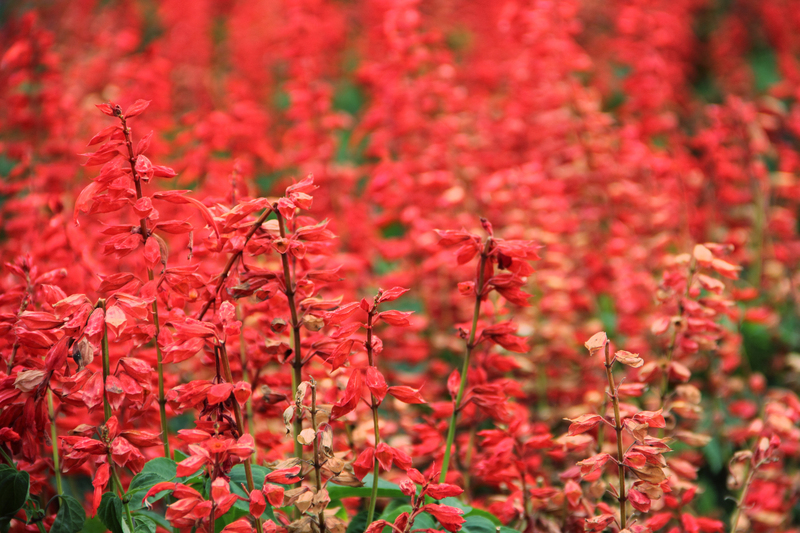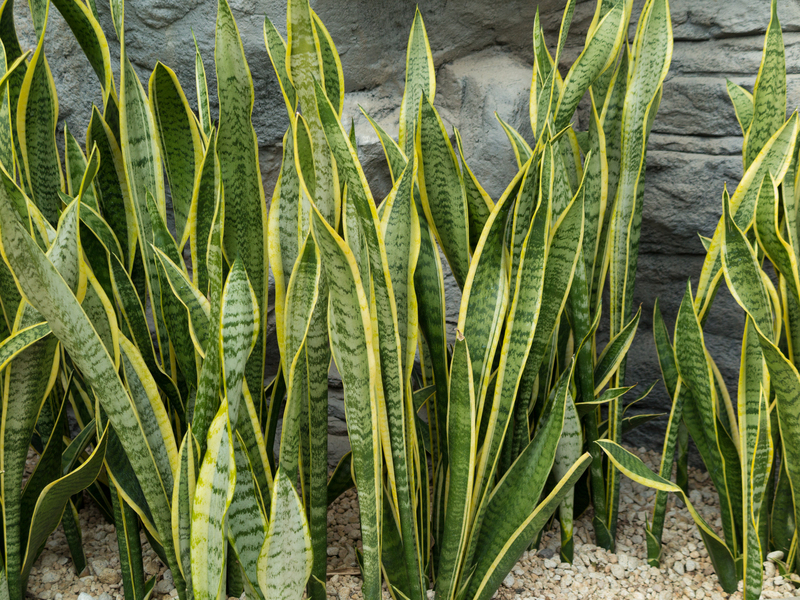Natural Ways to Enhance Privacy with Creative Landscaping
In an era where privacy has become a valuable commodity, homeowners are increasingly seeking natural solutions to shield their homes from prying eyes. Creative landscaping for privacy offers an eco-friendly, aesthetically pleasing, and cost-effective alternative to fences and artificial barriers. By strategically designing and planting, you can create serene and secluded oasis-like spaces using nature's own palette. In this comprehensive guide, we'll explore natural ways to enhance privacy, including expert tips, plant recommendations, and inventive landscaping ideas.
Why Choose Natural Privacy Landscaping?
Opting for natural privacy landscaping carries numerous benefits beyond simple seclusion. Here's why more homeowners are turning to green solutions:
- Aesthetic Appeal: Lush greenery and flowers add beauty and value to your property.
- Environmental Benefits: Plants improve air quality, reduce heat, and support local wildlife.
- Noise Reduction: Dense foliage acts as a natural sound barrier.
- Sustainability: Natural privacy screens often consume less energy and resources than building physical walls.
- Increased Property Value: Well-designed privacy landscapes can enhance curb appeal and boost property prices.

Assessing Your Privacy Needs
Before selecting plants or structures, evaluate your specific privacy requirements. Consider:
- Type of Privacy: Do you need complete privacy from above and all sides, or just partial screening from the street or neighbors?
- Viewpoints: Identify areas that need shielding, such as patios, pools, windows, or play areas.
- Climate and Soil: Choose plants that thrive in your local climate and soil conditions for longevity and low maintenance.
- Growth Rate: Are you looking for instant coverage or are you willing to wait for slow-growing, long-lasting plants?
Assessing these factors helps you create a tailored landscaping for privacy solution that meets your goals and works harmoniously with your environment.
Creative Landscaping Ideas for Natural Privacy
Let's dive into some innovative ways to use landscaping to enhance privacy naturally. Explore these creative ideas for blending beauty and seclusion:
1. Plant Living Fences and Hedges
One of the most common and effective natural privacy solutions is using dense hedges as living fences. Fast-growing evergreen shrubs, such as leyland cypress, arborvitae, holly, and privet, offer year-round foliage and can be pruned to your desired height and shape.
- Deciduous Hedges: Consider hornbeam, beech, or viburnum for a seasonal display of flowers and foliage.
- Flowering Shrubs: Lilacs, hydrangeas, and forsythia add color and fragrance while creating a privacy barrier.
- Edible Hedges: Blueberries, currants, or raspberries offer privacy and delicious harvests.
Tip: Layering different heights and species creates a more natural and multidimensional barrier.
2. Use Trees Strategically
Trees are natural giants of privacy screening. Plant a row of evergreen or broadleaf trees to block sightlines from upper windows or rooftops. Some top choices for privacy-enhancing trees include:
- Thuja Green Giant - Fast-growing, dense evergreen ideal for tall screens
- Eastern Red Cedar - Tolerant of poor soil, great for windbreaks and privacy
- Bamboo - For immediate height (choose clumping varieties to prevent invasiveness)
- Magnolia, Holly, or Wax Myrtle - Broadleaf evergreens for thick coverage
Tip: Stagger trees in a zigzag rather than a straight line for a more natural effect and better coverage.
3. Install Layered Planting Beds
Use a mix of perennials, grasses, and groundcovers to create thick vegetative screens at eye level. Ornamental grasses like miscanthus, switchgrass, and feather reed grass add texture and movement, while flowering perennials provide seasonal interest.
- Benefit: Layered plantings offer privacy, habitat for pollinators, and colorful beauty all year round.
- Design Tip: Start with taller plants at the back and gradually decrease height towards the front for lush, deep beds.
4. Integrate Vertical Gardens and Trellises
Where space is limited or quicker results are needed, vertical gardens and trellises can serve as excellent privacy landscaping solutions.
- Grow Vines: Fast-growing climbers such as clematis, wisteria, honeysuckle, or trumpet vine will quickly cover fences and trellises.
- Espalier Trees: Train fruit or ornamental trees to grow flat against a wall, combining privacy with productivity.
- Living Walls: Install modular planters or wall-mounted pockets filled with trailing or bushy plants for instant screening.
Tip: Use a series of screens with different plants and materials to create semi-private 'rooms' in your landscape.
5. Design Berms and Mounds
Earth sculpting is an often-overlooked method for boosting privacy naturally. By creating berms (raised earth mounds), you can effectively lift plantings to eye level, increasing their screening power and adding topographical interest.
- Combine with Landscaping: Berms paired with shrubs or trees create substantial privacy even if plantings are young or slow-growing.
- Bonus: Berms can help with drainage and serve as windbreaks.
6. Use Water Features as Sound Barriers
For a private and tranquil backyard retreat, incorporate water elements that provide both visual screening and sound masking. Bubbling fountains, waterfalls, or streams help block street or neighbor noise while forming soothing, secluded areas.
- Pair water features with plantings for a multi-sensory privacy solution that delights the eyes and ears.
7. Create Outdoor Rooms
Design distinct "rooms" in your outdoor space using a combination of hedges, walls, pergolas, and tall planters. This layered approach not only boosts privacy but also makes your garden feel larger and more intriguing.
- Use arbors and pergolas with climbing vines for partial shade and vertical privacy.
- Group large pots with tall plants (such as canna lilies or bamboo) around seating areas for instant screens.
Best Plant Choices for Privacy Landscaping
Selecting the right plants is key to achieving effective natural privacy landscaping. Here are top options for different regions and tastes:
Evergreen Shrubs and Trees
- Arborvitae (Thuja): Dense, columnar, fast-growing, minimal maintenance -- ideal for living fences
- Holly: Attractive, spiny leaves deter trespassers; many varieties for every region
- Boxwood: Classic for formal hedges, takes well to pruning
- Juniper: Hardy and drought tolerant, good for dry climates
- Laurel: Broadleaf evergreen, fast-growing and lush
Flowering and Deciduous Hedges
- Forsythia: Early spring blooms, fast-growing
- Spirea: Dense foliage and clusters of flowers
- Privet: Rapid growth, classic privacy hedge
- Viburnum: Many varieties, spring flowers and fall berries
Bamboo and Ornamental Grasses
- Clumping Bamboo: Non-invasive, dramatic height and coverage
- Miscanthus, Pampas Grass: Tall, feathery plumes, tolerant of various soils
- Switchgrass: Native, adaptable, upright growth
Climbers and Vines
- Clematis: Colorful blooms, moderate growth
- Honeysuckle: Fragrant, attracts pollinators
- Ivy (English Ivy): Evergreen, covers walls and fences quickly
Maintaining Your Natural Privacy Screen
Once established, your creative privacy landscaping will require some care to stay healthy, dense, and attractive:
- Prune regularly to maintain shape and promote bushiness.
- Fertilize as recommended for your selected plants to encourage vigorous growth.
- Mulch to retain moisture and discourage weeds.
- Water adequately, especially new plantings, to ensure strong root development.
Ongoing attention guarantees that your green privacy solutions stay effective and beautiful year after year.
Combining Nature with Functional Features
Blending natural landscaping privacy techniques with functional garden features can enhance both privacy and usability:
- Partition seating and dining areas with swings, gazebos, or screens surrounded by plantings.
- Decorative fencing or walls combined with tall grasses or vines for added style and privacy.
- Harmonize lighting: Use soft garden lights behind hedges or within beds for security and evening ambiance, without highlighting private areas.
Natural Privacy for Small Gardens and Urban Spaces
Living in close quarters doesn't mean sacrificing solitude. Creative landscaping for privacy is achievable even in small backyards or balconies:
- Container Gardens: Tall planters with bamboo or ornamental grasses quickly obscure sightlines.
- Wall Planters and Trellises: Green facades soften hard urban walls and provide lush vertical cover.
- Mini Hedges: Dwarf boxwood or privet hedges mark boundaries and boost privacy without overpowering the space.
- Outdoor Curtains: Fabric panels between posts or pergolas can create intimate corners amidst greenery.
Eco-Friendly Advantages of Green Privacy Solutions
Using natural landscaping for privacy not only safeguards your home life but also supports a healthier environment:
- Reduces need for artificial barriers, lowering your property's carbon footprint.
- Improves biodiversity by offering shelter and food for birds, butterflies, and pollinators.
- Cools your home naturally by providing shade and reducing heat absorption from hard surfaces.
- Absorbs sound for a quieter living space inside and out.

Frequently Asked Questions about Natural Privacy Landscaping
-
How fast do privacy plants grow?
Growth rates vary: Bamboo, privet, and certain arborvitae can grow 2-5 feet per year, while hardwoods like beech or boxwood are slower. Choosing a mix ensures both immediate and lasting privacy. -
Are there low-maintenance options for privacy screens?
Yes, evergreens like junipers and native grasses often require little pruning and are drought-tolerant after establishment. -
Can privacy plants block noise?
Dense plantings and hedges absorb and deflect sound, especially when layered with trees, shrubs, and groundcover. -
How do I prevent privacy hedges from becoming invasive?
Select non-invasive species for your region and avoid 'running' types of bamboo; opt for 'clumping' varieties instead.
Conclusion: Transform Your Landscape into a Private Haven
Enhancing privacy with creative natural landscaping is a rewarding investment for your home environment and well-being. Whether you prefer lush living fences, layered plant beds, elegant tree rows, or inventive vertical screens, your options are as limitless as your imagination. Natural ways to enhance privacy through landscaping offer a harmonious blend of form, function, and sustainability. With the ideas and guidelines in this article, you're well equipped to transform your outdoor space into a secluded, beautiful, and eco-friendly sanctuary.
Ready to reclaim your outdoor privacy? Begin by assessing your needs, pick the best plants and features for your landscape, and enjoy the peace and beauty that only nature can provide.